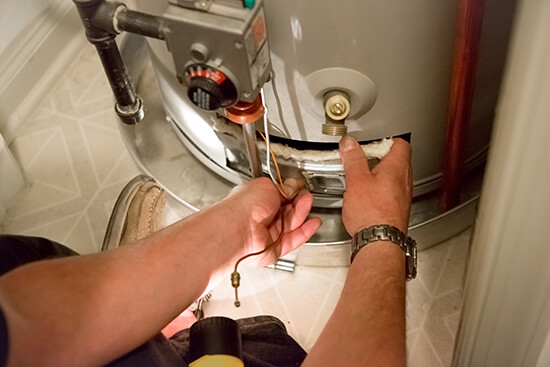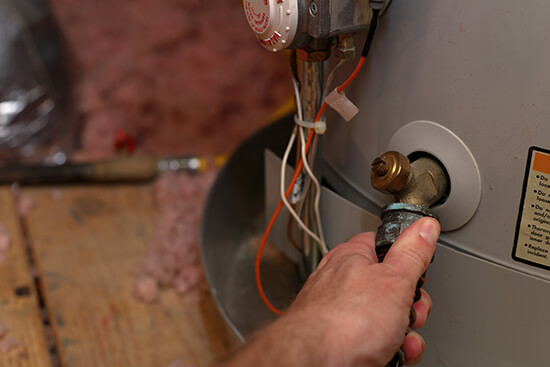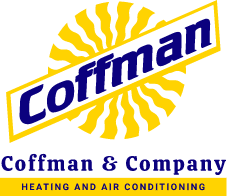
Of all the appliances in your Wheat Ridge home, your water heater is one of the easiest to overlook. Even your HVAC system, another “out of sight, out of mind” appliance, tends to get some recognition when you perform regular air filter changes. Don’t let the reliable operation of your water heater prevent you from performing the maintenance that it needs to remain reliable, though. Draining your water heater is one key way to help extend the life of your water heater and help to make it more efficient. To ensure you’re able to complete the process without damaging your water heater, here are a few insights into how the pros at Coffman & Company drain a water heater.
The Basic Parts of a Water Heater
All water heaters, both gas and electric, have the same basic parts. The temperature control valve, water supply lines, tank drain, and overflow tube are present on all water heaters. A gas water heater also has a gas control valve, air intake, gas line, flue pipe, and vent hood, burner, and igniter. An electric water heater has heating elements instead of a burner. When you’re draining your water heater, you’ll be using the gas control valve, water supply lines, the tank drain, and potentially the overflow tube. If you have an electric water heater, you may need to use the temperature control valve or the circuit breaker that powers your water heater.
Preparing To Drain Your Water Heater
Before you can drain your water heater, you need to make sure to cut power to the water heater. This is to prevent the burner or heating element from turning on while the tank is empty. You’ll also need to turn off the water supply to the water heater so that it doesn’t fill up while you’re trying to drain it.
Plus, you will need to connect a garden hose to the drain valve on your water heater and run the hose outside to allow the tank to drain. At Coffman & Company, we recommend that you put the end of the hose in a bucket so that any sediment that leaves your tank can collect in the bucket instead of in your grass or on your driveway. Finally, make sure to have some towels handy in case you have any leaks.
Draining and Refilling Your Water Heater

While the tank drains, head outside to see how much sediment is leaving the tank. If you’re noticing large chunks of sediment, it could be a sign that your water heater is deteriorating and will soon need to be replaced by Coffman & Company. After the tank is empty, close the drain valve, tighten the waterline, remove your hose, open the water supply, and turn on the gas or electrical supply. Check the water heater a couple of times after it’s full to make sure there aren’t any leaks.
What To Do if Your Drain Valve Won’t Close
The drain valve on your water heater is built to last. However, since it’s only used twice a year at most, you could run into a situation where your drain valve won’t close when you’re done draining your tank. In some cases, the corrosion on the valve may freeze the valve in the open position. In other cases, the metal component that stops the flow of water may disintegrate when it’s moved. In either case, it’s important to call Coffman & Company so that we can replace your drain valve and restore the operation of your water heater.
We’re the Water Heater Specialists
When you’re having a problem with your water heater, you can count on Coffman & Company to take care of the problem quickly and correctly. In addition to our water heater services, we also offer furnace installation, AC replacement, AC repair, and HVAC maintenance services. We can also install indoor air quality equipment to help make your home’s air cleaner. With countless five-star reviews, you can be sure that we’ll do what we say we will do.
To learn more about water heaters, contact us at Coffman & Company today!

